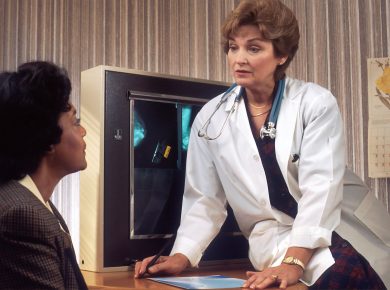You feel a slight quiver or movement under your skin. You look down to see the muscle in your arm or leg flutter briefly. These sensations are known as fasciculations. Fasciculations are fast, fine, spontaneous and intermittent contractions of muscle fibres. While they may seem alarming, muscle twitches are actually quite common and harmless in most cases. However, persistent fasciculations could potentially indicate an underlying neurological condition. Here’s an overview of benign vs worrisome causes of muscle twitching.
Common Causes of Benign Fasciculations
1. Stress and Anxiety
One of the most common triggers for fasciculations is stress and anxiety. When we feel mentally stressed, this can manifest physically in various ways, including muscle twitching. The twitches may occur during periods of high tension or may persist even when you feel mentally relaxed. Try stress reduction techniques like meditation, exercise, or speaking with a therapist. Avoiding stimulants like caffeine may also help.
2. Exercise
It’s very typical for fasciculations to occur during and after exercise. Twitching muscles after a workout is a sign you thoroughly challenged the muscle fibres. As long as the twitching resolves within a day, this is nothing to worry about. Stay well hydrated before, during, and after your workout.
3. Dehydration and Mineral Imbalances
Lack of fluids or electrolyte imbalances can cause muscles to twitch frequently. Be sure to consume enough water and electrolytes like magnesium and potassium daily. Signs of dehydration like excessive thirst, fatigue, and concentrated urine signal a need to increase fluid intake.
4. Muscle Fatigue
If you use a certain muscle excessively, it can begin to twitch from fatigue. This could occur after intense yard work, housework, typing, or playing sports. Avoid overuse of the affected muscle group to allow it to recover. Massage, stretching, and Epsom salt soaks can relax fatigued muscles.
When to See a Doctor About Muscle Twitching
While fasciculations usually aren’t serious, certain characteristics warrant medical evaluation:
– Twitching that persists for more than a few days or comes and goes over weeks. Benign twitches are typically short-lived.
– Twitching that spreads to other parts of the body like the arms, legs, face, and abdomen. This could indicate a neurological disorder.
– Muscle weakness or cramping in the affected limb. Weakness alongside twitching is a reason for concern.
– Impaired coordination or balance issues. Trouble walking steadily or grasping objects may accompany worrisome twitching.
– Widespread numbness or tingling throughout the limb, not just where the twitching occurs.
– Noticeable atrophy or muscle loss in the troubled area.
– Family history of neuromuscular disorders like ALS, myasthenia gravis, or Huntington’s disease.
What Testing is Done for Muscle Twitching
If worrying symptoms accompany your fasciculations, the neurologist will perform a physical exam and order testing such as:
– Bloodwork to check electrolyte and mineral levels plus markers of diseases like thyroid disorders.
– Nerve conduction studies to measure how well nerves send signals. Small shocks are delivered to evaluate response.
– EMG (electromyography) to assess electrical activity in muscles. A needle electrode inserted into the muscle detects abnormal electrical discharges.
– MRI or CT imaging to visualise the brain and nervous system anatomy.
– Lumbar puncture will be used to analyse CSF (cerebrospinal fluid) for signs of infection, inflammation, or other neurological conditions.
When to Consider Seeing a Neurologist
For most people, fasciculations are fleeting and harmless. Anxiety and stress often play a role. Staying hydrated and avoiding muscle overuse can allow them to resolve. However, persisting twitching or any weakness warrants an exam. Don’t ignore unusual neurological symptoms and hope they’ll just go away. Getting evaluated promptly can detect if any serious disorders are present. In many cases, muscle twitches do turn out to be benign. But it’s always better to be safe and catch a potentially treatable condition as early as possible.
Key Takeaways
Muscle twitching is usually harmless and a normal part of life. Lifestyle factors, stress, and dehydration can contribute to these involuntary contractions. However, it’s essential to pay attention to persistent or unusual twitching, especially when accompanied by other symptoms. Remember, your health is a priority, and understanding when to be concerned about muscle twitching is a step toward maintaining your overall well-being.






